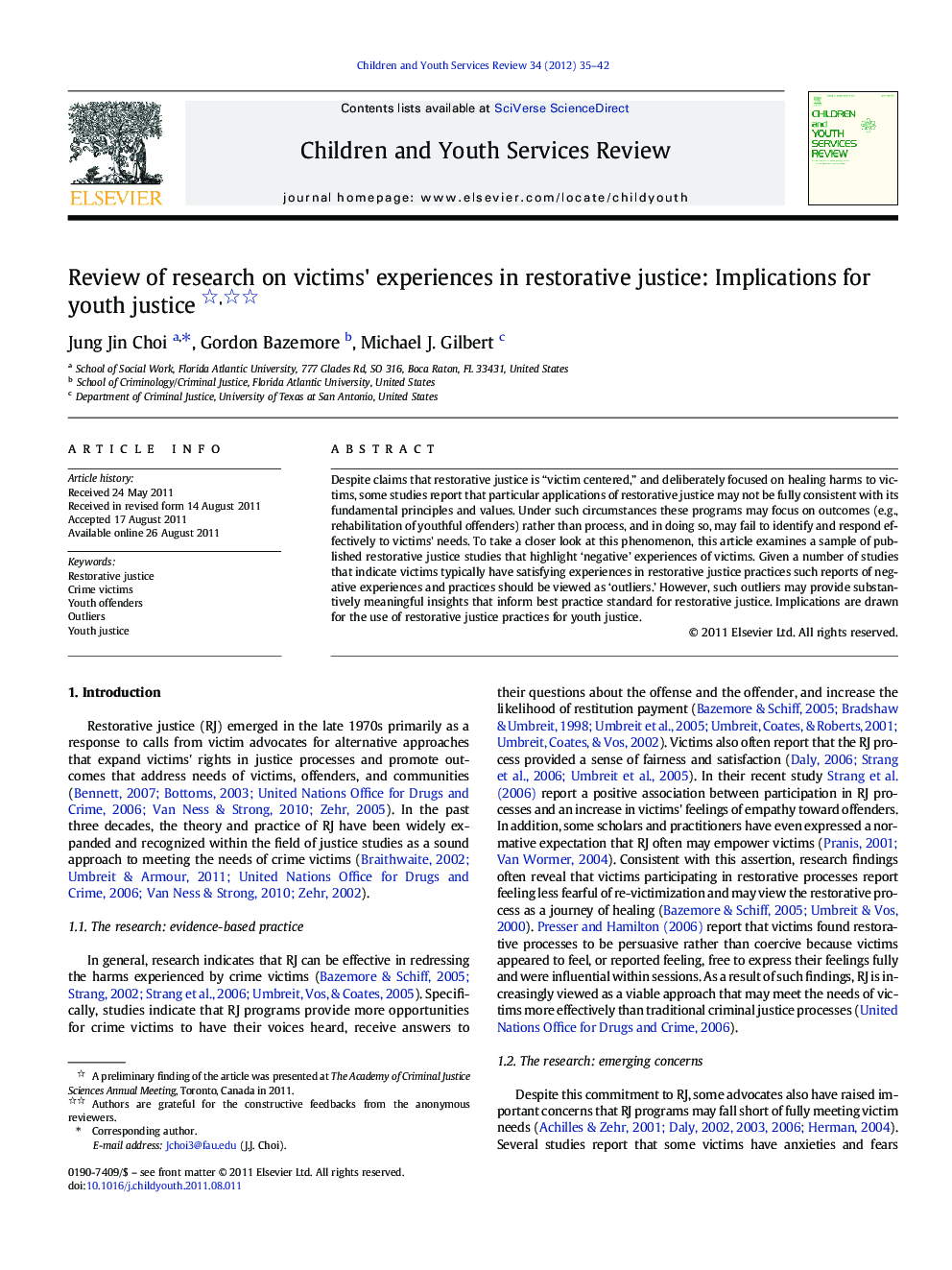| Article ID | Journal | Published Year | Pages | File Type |
|---|---|---|---|---|
| 346708 | Children and Youth Services Review | 2012 | 8 Pages |
Despite claims that restorative justice is “victim centered,” and deliberately focused on healing harms to victims, some studies report that particular applications of restorative justice may not be fully consistent with its fundamental principles and values. Under such circumstances these programs may focus on outcomes (e.g., rehabilitation of youthful offenders) rather than process, and in doing so, may fail to identify and respond effectively to victims' needs. To take a closer look at this phenomenon, this article examines a sample of published restorative justice studies that highlight ‘negative’ experiences of victims. Given a number of studies that indicate victims typically have satisfying experiences in restorative justice practices such reports of negative experiences and practices should be viewed as ‘outliers.’ However, such outliers may provide substantively meaningful insights that inform best practice standard for restorative justice. Implications are drawn for the use of restorative justice practices for youth justice.
► It is assumed that restorative justice is victim centered. ► Yet, some applications may not be fully consistent with its principles. ► We examine studies that highlight ‘negative’ experiences of victims as “outliers.” ► Findings suggest that these programs may focus on outcomes rather than process. ► We discuss implications of the findings for youth justice.
